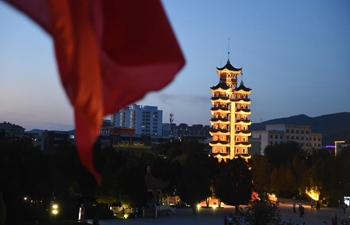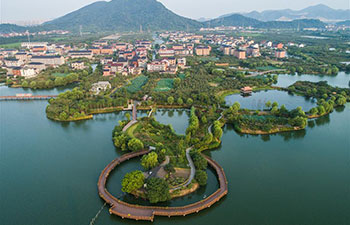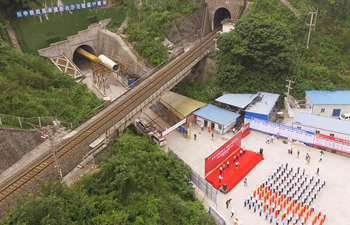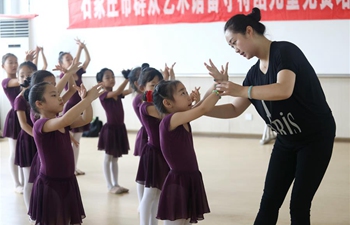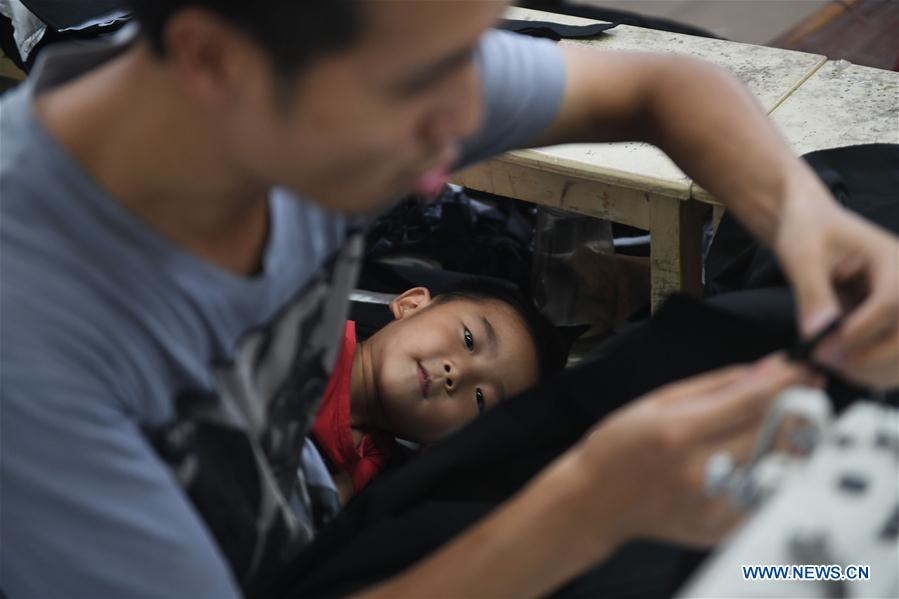
Congcong watches his father working at the workshop of a clothes factory in Shishi, southeast China's Fujian Province, Aug. 1, 2019. The scorching heat has been engulfing Shishi of southeast China's Fujian this summer, leaving few walking on the usually-bustling streets. By contrast, clothes factories, which are densely dotted in the city, are crowded with people who have been swamped with their work as summer is the peak season for garment making every year, and also their children. The reputed status of Shishi as a major clothes manufacturer across the country is largely attributed to enormous efforts made by rural migrant workers, which exceed those with local permanent residence in terms of quantity. China's remarkable economic growth over the past few decades would have been impossible without the hundreds of millions of rural laborers that packed up and headed to cities for work. Statistics from the National Bureau of Statistics show that the number of rural migrant workers rose 1.3 percent year on year to 182.48 million as of the end of the second quarter in 2019. The busiest time of the year coincides with the summer vacation for most of their school children, and kids turn what they have experienced in factories into something joyous and unforgettable etched into their memories. To better provide on-site childcare, many young workers, mostly from the post-1980 generation, migrated with their children in Shishi to secure a job in apparel factories after they were born, and sent kids either to local schools or hometowns for education. When it comes to school breaks, especially during the summer vacation, children came back to the workshops of garment factories in Shishi to live with parents and play with buddies they grew up together. They are like migrant birds flying into and out of workshops, not for overwintering, but for family gatherings. The workshops have genuinely become a home to children who were brought up here. They know pretty well the number of sewing machines in the workshop and can tell exactly whose milk powder can it is at any corner of the workshop. They seek enjoyment in cramped conditions in the simplest way, which constitutes their sweet childhood memories. Living with parents here made these children more self-reliant compared with their peers and better look after not only themselves, but also their parents as long working hours and heavy workload here leave parents struggling to have an active presence in their children's daily life. After wearing clothes and practicing hygiene on their own, kids go to workshops where their parents have already worked in the morning and accompany them until about 9 p.m., occasionally before midnight when there are too many orders yet to be completed. Despite long waiting hours in workshops resounded with the hum of sewing machines and electric fans, children can find their own ways out to make their time more interesting and meaningful. They often help parents count wages and run errands like handing over cloth and changing bobbins. They also compete with each other for who can give their best care to parents and regard it as a source of pride and happiness. Many elder children try as much as they can to give a hand for their parents as a way to reduce their workload. As children come and have family gatherings in Shishi with their parents during summer vacation, some large-scale factories here provide childcare services like summer camps to settle kids free of charge, while those in small and medium size allow workers to look after kids in the workshops on the condition that relevant agreements have been signed. Apart from that, local authorities also take multiple measures to ensure safe and sound family gatherings between migrant workers and their kids. A program for public benefits where college students offer kids companionship during school breaks will soon be launched, which also gains support from factory managers to help carry forward the program. (Xinhua/Song Weiwei)







